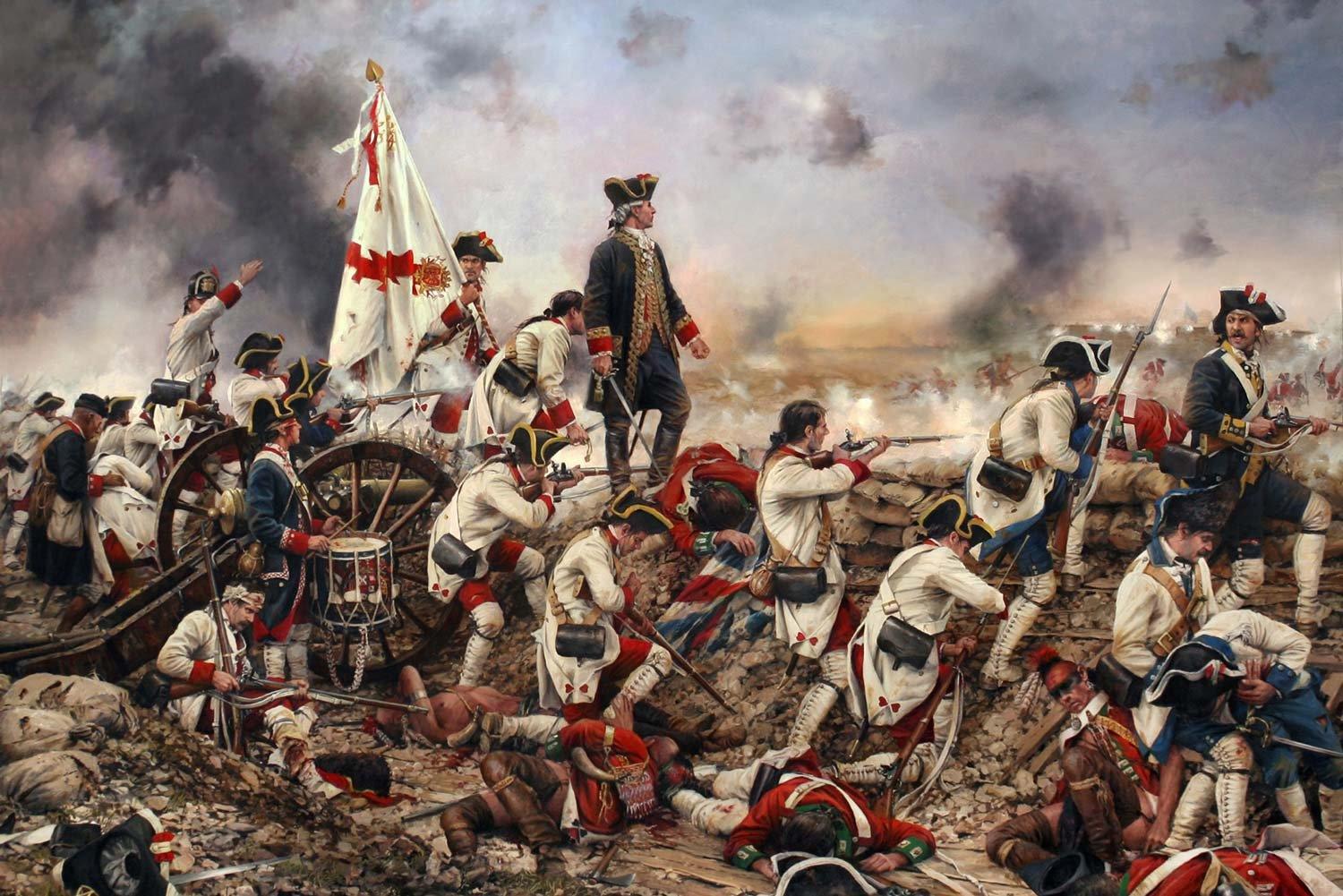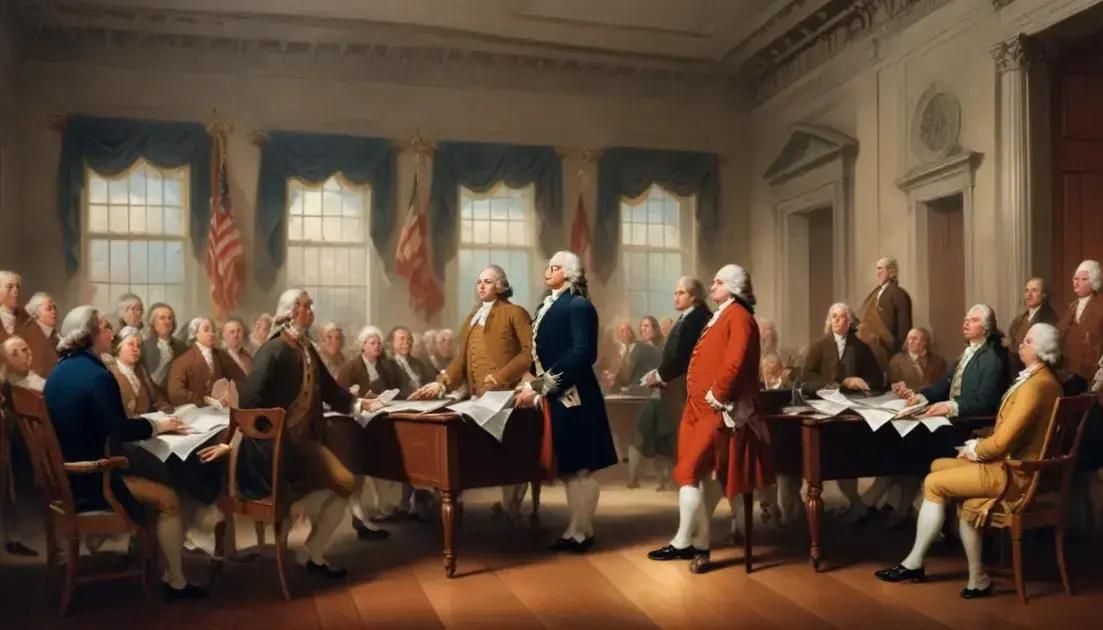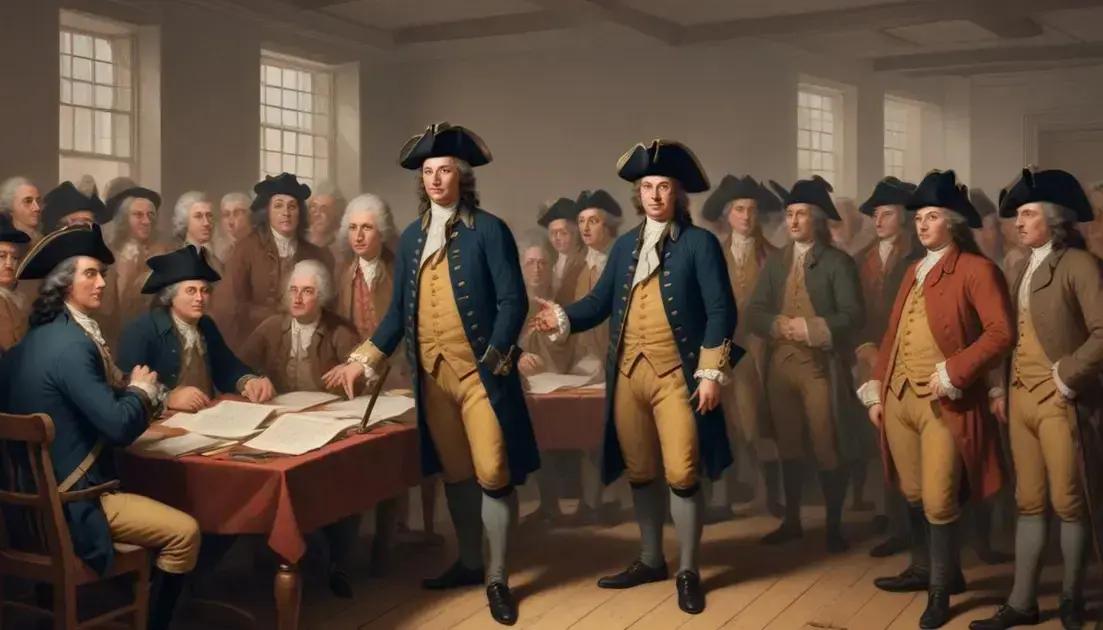
The American Revolution: Causes and Consequences
The American Revolution, a pivotal moment in modern history, irrevocably altered the course of American and global politics, society, and economics. This colonial revolt, spanning from 1765 to 1783, witnessed the Thirteen Colonies in North America successfully rejecting British rule and establishing the United States of America as a sovereign nation. This in-depth exploration delves into the multifaceted causes of the Revolution, analyzes its profound consequences, and examines its enduring legacy, demonstrating its continued relevance in contemporary society.
I. The Seeds of Rebellion: Understanding the Causes of the American Revolution
The American Revolution wasn’t a spontaneous eruption but rather the culmination of decades of escalating tensions between Great Britain and its North American colonies. Several interconnected factors fueled this growing discontent, ultimately culminating in armed conflict.
A. Taxation Without Representation: The core grievance of the colonists stemmed from the British government’s imposition of taxes without their consent or representation in Parliament. Following costly wars, particularly the French and Indian War (1754-1763), the British government, burdened by substantial debt, sought to extract revenue from its American colonies. This led to the implementation of a series of unpopular acts:
The Sugar Act (1764): Increased taxes on imported sugar and molasses, aiming to curb smuggling and bolster government revenue. While seemingly minor, it served as a precursor to more stringent measures, signaling a shift in British colonial policy. The colonists protested vigorously, arguing that the Act infringed upon their rights as Englishmen.
The Stamp Act (1765): Required colonists to purchase special stamped paper for various documents, including legal documents, newspapers, and playing cards. This direct tax generated widespread outrage, sparking widespread protests and boycotts. The cry of “No taxation without representation” became a rallying cry, encapsulating the colonists’ fundamental opposition to taxation without a voice in the legislative process.
The Townshend Acts (1767): Imposed taxes on imported goods such as tea, glass, paper, and paint. These taxes were ostensibly designed to fund colonial administration, but the colonists viewed them as another attempt to exploit their resources without their consent. The resulting boycotts, organized by prominent figures such as Samuel Adams, significantly impacted British trade and further heightened tensions.
The Tea Act (1773): Granted the East India Company a monopoly on tea sales in the colonies, effectively undercutting colonial merchants. While ostensibly benefiting the British, it was perceived as another insidious attempt to control the colonial economy. This triggered the infamous Boston Tea Party, a symbolic act of defiance that galvanized colonial resistance and escalated the conflict.
The repeated imposition of taxes without representation demonstrated a fundamental breach of trust between the colonies and the British government, solidifying the colonists’ belief that their rights and liberties were under direct threat.
B. Mercantilist Policies: Great Britain’s mercantilist economic policies, designed to benefit the mother country, placed significant restrictions on colonial trade. The Navigation Acts, enforced throughout the 18th century, mandated that colonial trade be conducted primarily through England, severely limiting the colonies’ ability to trade freely with other nations. This economic stranglehold fostered resentment and fueled a desire for greater economic autonomy.
C. Growing Colonial Identity: Over the course of the 18th century, a distinct American identity emerged, increasingly differentiated from British identity. The colonists, having developed their own unique culture, traditions, and political systems, felt increasingly alienated from British rule. The geographic distance and the development of representative assemblies in the colonies further contributed to this growing sense of separateness.
D. The Proclamation of 1763: This proclamation, following the conclusion of the French and Indian War, prohibited American settlement west of the Appalachian Mountains. The British aimed to prevent further conflicts with Native American tribes, but the colonists saw it as an unjust restriction on their westward expansion and their access to land and resources. This fueled anger and frustration, exacerbating the already strained relationship between the colonies and Great Britain.
E. The Quartering Act: This Act compelled colonists to house and provide supplies to British troops stationed in the colonies. This direct intrusion into colonial homes and lives was deeply resented and seen as an oppressive measure by many colonists.
F. The Intolerable Acts: In response to the Boston Tea Party, the British Parliament passed a series of punitive measures known as the Intolerable Acts (1774). These acts closed the port of Boston, curtailed self-governance in Massachusetts, and allowed for the quartering of British troops in private homes. These acts were widely perceived as an attack on colonial liberties and further radicalized colonial sentiment, pushing the colonies closer to open rebellion.
These interwoven factors – taxation without representation, restrictive mercantilist policies, the growth of a distinct colonial identity, the Proclamation of 1763, the Quartering Act, and finally, the Intolerable Acts – created a climate ripe for revolution. The colonists’ growing sense of injustice and their desire for self-governance culminated in armed conflict.
II. Key Figures Shaping the Revolution:
The American Revolution was not simply a series of events; it was shaped and driven by influential individuals whose actions and ideologies profoundly impacted its trajectory.
A. George Washington: A Virginia planter and military officer, Washington’s leadership proved indispensable to the success of the Revolution. His unwavering dedication, military acumen (though initially limited), and ability to maintain the morale of his troops were crucial in overcoming numerous setbacks. Washington’s presence unified the Continental Army and instilled a sense of hope and purpose during difficult times. His decision to serve without pay and his commitment to the cause played a critical role in maintaining the Continental Army’s cohesion.
B. Thomas Jefferson: Jefferson, a Virginia planter and statesman, drafted the Declaration of Independence, a document that articulated the philosophical underpinnings of the Revolution. His eloquent prose eloquently expressed the colonists’ grievances against the British government and proclaimed the fundamental principles of liberty, equality, and self-governance. The Declaration’s influence extended far beyond the confines of the American colonies, inspiring revolutionary movements worldwide.
C. John Adams: A Massachusetts lawyer and statesman, Adams played a vital role in advocating for independence and shaping the new nation. He was instrumental in securing French support for the American cause, and his diplomatic skills were critical in negotiating treaties and establishing international recognition for the newly formed United States.
D. Benjamin Franklin: A polymath, statesman, and inventor, Franklin served as a crucial diplomat during the Revolution. His intellect, charm, and extensive network of contacts in Europe secured critical financial and military support from France, a decisive factor in the American victory. Franklin’s wisdom and diplomacy proved invaluable in navigating the complex diplomatic landscape of the era.
E. Patrick Henry: A fiery orator from Virginia, Henry’s passionate speeches ignited the flames of rebellion. His famous “Give me liberty, or give me death!” speech exemplifies the revolutionary fervor and the willingness to fight for independence. His oratory skills and his ability to rouse public support proved essential to the movement’s momentum.
These figures, among many others, played critical roles in galvanizing support for the Revolution, providing strategic leadership, and articulating the ideals that would shape the nascent nation. Their contributions extended beyond the battlefield and the halls of government, influencing the cultural and intellectual landscape of the era.
III. Major Events: The Course of the Revolution
The American Revolution was characterized by a series of pivotal events that shaped its narrative and ultimately led to American independence.
A. The Boston Massacre (1770): A violent confrontation between British soldiers and American colonists resulted in the death of five colonists. While the incident was complex, it became a potent symbol of British oppression and fueled anti-British sentiment, galvanizing colonial resistance. The propaganda surrounding the event, masterfully crafted by figures such as Paul Revere, solidified the image of the British as brutal oppressors.
B. The Boston Tea Party (1773): A dramatic act of defiance against the Tea Act, colonists, disguised as Native Americans, boarded British ships in Boston Harbor and dumped chests of tea into the water. This audacious protest was a powerful statement of colonial resistance and solidified the determination to resist British rule. The act served as a turning point, marking a significant escalation in the conflict.
C. The Battles of Lexington and Concord (1775): These engagements marked the beginning of the armed conflict between the British army and the colonial militia. While a relatively small-scale engagement, it symbolized the initiation of open warfare and irrevocably altered the relationship between Great Britain and its colonies.
D. The Declaration of Independence (1776): This pivotal document, primarily authored by Thomas Jefferson, formally declared the independence of the Thirteen Colonies from Great Britain. It outlined the colonists’ grievances against the British government and asserted their right to self-governance, based on the principles of natural rights, popular sovereignty, and the right to revolution. The Declaration’s impact on the course of history is immeasurable, influencing countless subsequent movements for freedom and self-determination.
E. The Battle of Saratoga (1777): A crucial turning point in the war, the American victory at Saratoga persuaded France to formally ally with the United States, providing critical financial and military support that proved instrumental in the eventual American victory.
F. The Battle of Yorktown (1781): The decisive battle of the war, resulting in the surrender of the British army under Lord Cornwallis. This victory effectively ended major fighting in the American Revolution and paved the way for the Treaty of Paris.
G. The Treaty of Paris (1783): Formally recognized the independence of the United States, marking the official end of the American Revolutionary War. This treaty established the boundaries of the new nation and laid the foundation for future relations between the United States and Great Britain.
These events, interwoven with the contributions of key figures and the evolving political landscape, shaped the course of the American Revolution, culminating in the birth of a new nation.
IV. A Nation Forged: The Consequences of the American Revolution
The American Revolution brought about profound and far-reaching consequences, both domestically and internationally.
A. The Establishment of the United States: The most immediate consequence was the creation of an independent nation, the United States of America. This new nation was founded upon the principles of self-governance, popular sovereignty, and individual liberties as articulated in the Declaration of Independence. The establishment of the United States marked a significant departure from the established European model of monarchy and empire.
B. The Inspiration of Revolutionary Movements: The success of the American Revolution served as a powerful inspiration for other independence movements around the world. The ideals of liberty, equality, and self-determination resonated deeply with oppressed people across the globe, inspiring revolutions in France, Latin America, and beyond. The American Revolution’s impact on global political thought and action is undeniable.
C. The Development of Democratic Ideals: The American Revolution played a pivotal role in the development of democratic ideals and institutions. While the early United States was far from a fully realized democracy (due to slavery and limited suffrage), the Revolution’s emphasis on self-governance and popular representation significantly advanced the cause of democratic governance worldwide. The experiment in American democracy, despite its imperfections, provided a model and a stimulus for further democratic development.
D. Economic Transformation: The revolution prompted significant economic changes. The mercantilist restrictions imposed by Great Britain were abolished, allowing for the development of a more independent and diversified American economy. However, the war’s economic consequences were complex, leading to significant debt and economic instability in the early years of the new nation. The challenges of establishing a stable national economy were a defining feature of the post-revolutionary period.
E. Westward Expansion: The removal of British control opened up vast territories to American settlement, leading to significant westward expansion. This expansion, however, came at a considerable cost to Native American populations, who faced displacement, dispossession, and violence.
V. The Enduring Legacy: The American Revolution in Contemporary Society
The American Revolution’s legacy continues to shape American society, politics, and culture, and its impact is still felt globally.
A. Political Ideals: The ideals of liberty, equality, and self-governance, articulated during the Revolution, remain central to American political discourse and continue to inspire political movements and social change. These ideals, however, have been continuously contested and reinterpreted throughout American history, reflected in ongoing debates about the meaning of equality, the role of government, and the scope of individual rights.
B. Constitutionalism: The United States Constitution, born out of the need to create a stronger and more stable government after the Articles of Confederation proved inadequate, became a foundational document for republican government and a model for many other nations. The principles of checks and balances, separation of powers, and federalism, enshrined in the Constitution, continue to be studied and debated globally.
C. Civil Rights and Social Movements: The ideals of the American Revolution have been invoked in numerous social movements throughout American history, from the abolitionist movement to the Civil Rights Movement. The struggle for equality and justice, rooted in the principles of the Revolution, continues to shape American society and the pursuit of a more perfect union.
D. Global Influence: The American Revolution’s impact on global politics continues. The nation’s founding principles—liberty, equality, and self-determination—have inspired countless movements for independence, democracy, and human rights worldwide. The United States’ role as a global power, while controversial, is inextricably linked to the legacy of its revolutionary origins.
VI. Conclusion:
The American Revolution, a complex and transformative event, remains a vital area of study. Its causes, encompassing economic grievances, political philosophy, and evolving colonial identity, provide essential insights into the dynamics of revolution. Its profound consequences, including the birth of the United States, the spread of democratic ideals, and the inspiration of numerous other revolutionary movements, continue to shape the global landscape. The legacy of the American Revolution, while imperfect and often contested, persists as a significant force in contemporary society, underscoring the ongoing struggle for liberty, equality, and self-governance. Its lessons and its challenges continue to resonate in the world today.


